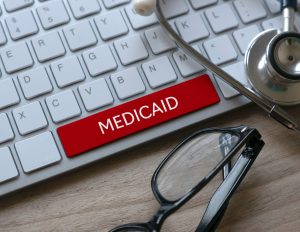
Reverse Mortgage and Medicaid: What You Need to Know
Reverse mortgages can be a valuable tool for seniors looking to access their home equity without selling their home. However, when combined with Medicaid, a means-tested program providing healthcare for low-income individuals, it's crucial to understand how these two financial elements interact. This guide will explore how reverse mortgages and Medicaid can affect each other, and what considerations seniors should keep in mind to maintain their benefits.
Verify my mortgage eligibility (Feb 26th, 2026)Understanding Reverse Mortgages
A reverse mortgage allows homeowners aged 62 or older to convert part of their home equity into cash. Unlike traditional mortgages, borrowers receive payments from the lender. The loan is repaid when the homeowner sells the home, permanently moves out, or passes away.
Verify my reverse mortgage eligibility!
Medicaid Eligibility and Asset Limits

Medicaid is designed to help individuals with limited income and assets. To qualify, individuals must meet strict financial criteria, which typically exclude the primary residence up to a certain value, personal items, and a car. However, how does a reverse mortgage affect Medicaid eligibility?
Verify my mortgage eligibility (Feb 26th, 2026)Verify my reverse mortgage eligibility!
Impact of Reverse Mortgages on Medicaid

1. Reverse Mortgage Proceeds and Income:
- Loan Proceeds: The funds received from a reverse mortgage are generally considered loan proceeds, not income. Therefore, reverse mortgage payments themselves usually do not affect Medicaid eligibility.
- Income for Medicaid: However, once these proceeds are deposited into a bank account and not spent within the same month, they can be counted as assets. Regular monthly disbursements from a reverse mortgage could potentially be viewed as income in some states, impacting Medicaid eligibility.
2. Asset Considerations:
Verify my mortgage eligibility (Feb 26th, 2026)- Home Equity: The primary residence is often exempt from Medicaid asset limits, provided it does not exceed the value cap set by the state. With a reverse mortgage, if the loan proceeds increase your home equity beyond this cap, it might affect Medicaid eligibility.
- Managing Assets: If reverse mortgage proceeds are not used within the month they are received, they may be counted as countable assets in subsequent months. Proper management of these funds is essential to maintain eligibility for Medicaid.
3. Estate Recovery and Medicaid:
- Loan Repayment: Medicaid has an estate recovery program that seeks to reclaim costs of care from the estate of a deceased recipient. If a reverse mortgage is in place, the loan must be repaid upon the sale of the home or from other assets, which can impact the estate's value and Medicaid’s ability to recover costs.
- Home Retention: For those planning to leave their home to heirs, it's important to consider how both the reverse mortgage balance and Medicaid claims could reduce the estate’s value significantly.
Verify my reverse mortgage eligibility!
Strategic Management of Reverse Mortgages and Medicaid
- Consult with a Medicaid Planner: Engaging with a Medicaid planner is crucial to navigate the complexities of reverse mortgages and Medicaid eligibility. They can provide strategies tailored to your unique circumstances.
- Proper Fund Management: To avoid impacting Medicaid eligibility, ensure that reverse mortgage proceeds are managed carefully. Spending the funds on allowable expenses within the month they are received can help prevent them from becoming countable assets.
- Consider Timing and Needs: The timing of initiating a reverse mortgage and receiving funds is essential. Aligning these actions with Medicaid application periods and eligibility reviews can help maintain benefits and financial stability.
- Evaluate Financial Alternatives: Explore other financial options that might not affect Medicaid eligibility as directly as reverse mortgage proceeds. This could include considering different types of financial assistance programs.
Verify my reverse mortgage eligibility!
Understanding how a reverse mortgage and Medicaid interact is vital for seniors planning to use home equity while relying on Medicaid for healthcare coverage. By managing reverse mortgage funds carefully and seeking professional advice, seniors can maintain their Medicaid benefits and use their home equity effectively. At Opulence Home Equity, we specialize in helping clients navigate these complex interactions and make informed financial decisions. Contact us today to learn more about how reverse mortgages can be integrated into your financial planning without jeopardizing Medicaid eligibility.
Show me today's rates (Feb 26th, 2026)